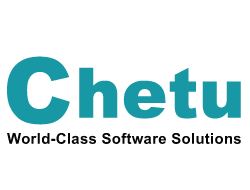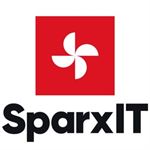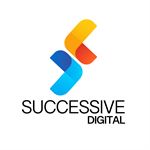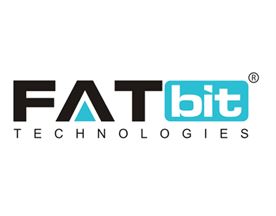What is white label software ? White label software is a product created by one company but branded and sold by another, allowing rapid market entry and customization.
White label software has been a game-changer for businesses and agencies looking to offer a wider range of services to their clients without incurring the costs and time associated with developing their own software solutions. White label software is a pre-built software solution that can be rebranded and resold by third-party companies under their own brand name. This allows businesses and agencies to offer a wider range of services to their clients without the need for additional resources or expertise.
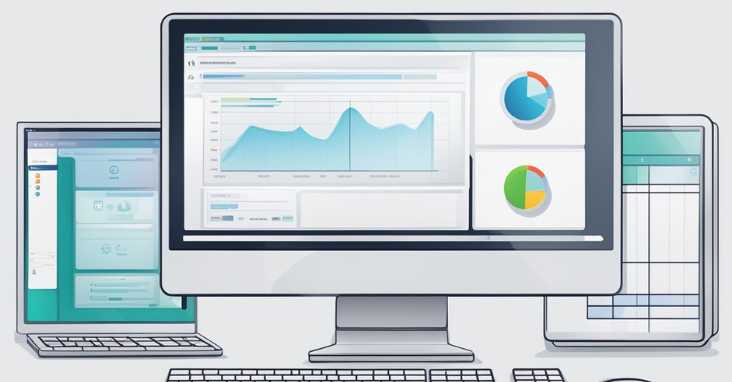
Understanding White Label Software
White label software is a cost-effective solution for businesses and agencies looking to expand their service offerings without investing in the development of their own software solutions. White label software is pre-built and can be easily customized to meet the needs of the reseller’s clients. This allows businesses and agencies to offer a wider range of services to their clients without the need for additional resources or expertise. A high-quality white label software solution can help businesses and agencies increase revenue and improve customer satisfaction.
Key Takeaways
- White label software is a pre-built software solution that can be rebranded and resold by third-party companies under their own brand name.
- White label software is a cost-effective solution for businesses and agencies looking to expand their service offerings without investing in the development of their own software solutions.
- A high-quality white label software solution can help businesses and agencies increase revenue and improve customer satisfaction.
Source: TechTarget
Understanding White Label Software
Definition and Core Concepts
White label software refers to software products that are developed by one company and then rebranded and sold by another company under their own brand name. This means that the end product appears to have been created by the company selling it, rather than the original developer. White label software can be used in a variety of industries, including finance, healthcare, and e-commerce.
The process of white labeling involves taking a product that has already been developed and customizing it to meet the needs of the company that is selling it. This customization can include adding the company’s branding, changing the user interface, and modifying the functionality of the software.
White label software can be a cost-effective solution for companies that want to offer a product or service without having to invest in the development of their own software. By using white label software, companies can save time and money while still offering a high-quality product to their customers.
Benefits for Businesses and Agencies
There are several benefits to using white label software for businesses and agencies. One of the main benefits is that it allows companies to offer a product or service under their own brand name, which can help to build brand recognition and loyalty.
Another benefit is that white label software can be customized to meet the specific needs of the company that is selling it. This means that companies can offer a product that is tailored to their target market, which can help to increase sales and customer satisfaction.
Additionally, white label software can be a cost-effective solution for businesses and agencies. By using pre-existing software, companies can save time and money on development costs, which can be invested in other areas of the business.
Overall, white label software can be a valuable tool for companies that want to offer a product or service under their own brand name without investing in the development of their own software. With its customizable features and cost-effective solutions, white label software can help businesses and agencies to grow and succeed in their respective industries.
To learn more about white label software and its benefits, check out this article.
Key Features of White Label Software
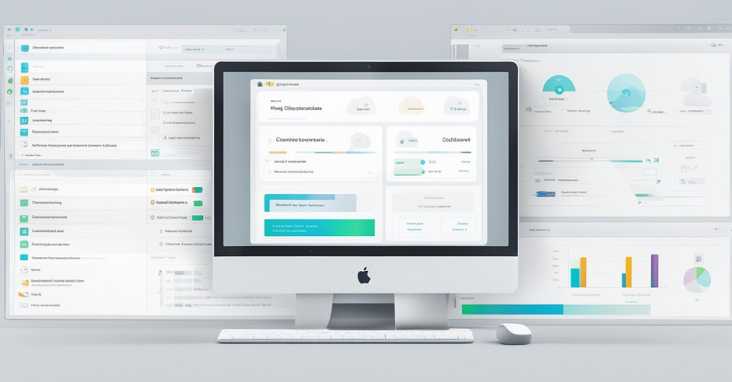
White label software is a powerful tool for businesses that want to expand their offerings without investing in expensive development costs. Here are some key features of white label software that make it an attractive option for many businesses.
Customization Options
One of the primary benefits of white label software is the ability to customize it to match your brand. This means that you can add your logo, change the color scheme, and even modify the user interface to make it more user-friendly. With white label software, you can create a seamless experience for your customers that reinforces your brand identity.
Integration Capabilities
White label software is designed to integrate seamlessly with other tools and technologies, making it an ideal choice for businesses that want to streamline their operations. Whether you need to integrate your white label software with your CRM, your accounting software, or your e-commerce platform, you can do so easily and efficiently.
Analytics and Reporting Tools
White label software often comes with powerful analytics and reporting tools that allow you to track and analyze your performance. With these tools, you can gain valuable insights into your customers’ behavior, identify trends and patterns, and make data-driven decisions that improve your bottom line.
Overall, white label software offers a range of benefits for businesses that want to expand their offerings without investing in expensive development costs. By customizing the software to match your brand, integrating it with other tools and technologies, and using analytics and reporting tools to track your performance, you can create a seamless experience for your customers and improve your bottom line. For more information on white label software, check out this link to a high-authority article on the topic.
Marketing and Branding Strategies

White label software is an excellent option for businesses that want to offer a product or service without investing in the development of a new product from scratch. However, the success of a white label product depends on effective marketing and branding strategies.
Branding and Rebranding Techniques
Branding is an essential element in the success of any product. Companies that offer white label software should consider creating a unique brand identity that differentiates their product from others. This can be achieved through the use of logos, color schemes, and other visual elements.
Rebranding is also an effective technique for companies that want to refresh their image or target a new market. Rebranding can involve changes to the product’s name, logo, or marketing strategy. However, it is important to be careful when rebranding, as it can alienate existing customers if not done correctly.
Leveraging Social Media for Visibility
Social media is an excellent tool for businesses to increase visibility and reach a wider audience. Companies that offer white label software should consider creating social media profiles on popular platforms such as Facebook, Twitter, and LinkedIn. These profiles can be used to share information about the product, engage with customers, and promote the brand.
SEO and Content Creation
Search engine optimization (SEO) is an essential technique for businesses that want to improve their online visibility. Companies that offer white label software should consider creating a website that is optimized for search engines. This can be achieved through the use of relevant keywords, meta descriptions, and other SEO techniques.
Content creation is also an effective technique for businesses that want to improve their online visibility. Companies that offer white label software should consider creating high-quality content that is relevant to their target audience. This can include blog posts, infographics, and other types of content.
In conclusion, effective marketing and branding strategies are essential for the success of white label software. Companies that offer white label software should consider branding and rebranding techniques, leveraging social media for visibility, and utilizing SEO and content creation to improve their online presence. By implementing these strategies, businesses can increase their visibility, reach a wider audience, and ultimately achieve greater success.
Pricing Models and Revenue Streams

When it comes to white label software, choosing the right pricing model and revenue stream is crucial to the success of the product. In this section, we will discuss some of the most common pricing models and revenue streams used in the industry.
Subscription and Licensing
One of the most popular pricing models for white label software is a subscription-based model. This model allows customers to pay a monthly or yearly fee to access the software. This model is often used for SaaS (Software as a Service) products and provides a steady stream of revenue for the software provider. Another common pricing model is licensing, where customers pay a one-time fee to use the software. This model is often used for on-premise software and provides a larger upfront payment for the software provider.
Cost-Benefit Analysis
When deciding on a pricing model, it’s important to conduct a cost-benefit analysis to determine the most profitable option. This analysis should take into account factors such as development costs, marketing costs, and ongoing maintenance costs. It’s also important to consider the value that the software provides to customers and the price point that they are willing to pay.
Maximizing Profit Margins
To maximize profit margins, software providers can consider implementing tiered pricing or upselling additional features. Tiered pricing allows customers to choose from different levels of service based on their needs, while upselling encourages customers to upgrade to a higher-priced plan by offering additional features or services. It’s important to strike a balance between providing value to customers and maximizing profit margins for the software provider.
Overall, choosing the right pricing model and revenue stream is essential to the success of a white label software product. By conducting a cost-benefit analysis and considering factors such as customer value and profit margins, software providers can make informed decisions that benefit both themselves and their customers.
Here is an external resource with more information on pricing strategies for software products.
Selecting the Right White Label Partner
When it comes to white label software, selecting the right partner is crucial for success. With so many providers in the market, it can be challenging to choose the right one. However, by considering the following criteria, businesses can make an informed decision.
Criteria for Choosing a Provider
Experience: Look for a white label provider with a proven track record of success. Check their portfolio and client testimonials to assess their expertise in the industry.
Customization: A good white label partner should offer a high degree of customization to meet the specific needs of your business. Make sure the provider can tailor their software to your requirements.
Pricing: The cost of white label software can vary significantly between providers. It’s essential to compare pricing and ensure that you’re getting a good deal without compromising on quality.
Security: Security is a top priority when it comes to white label software. Ensure that the provider has robust security measures in place to protect your data and your customers’ data.
Assessing Support and Maintenance Services
Apart from the above criteria, it’s also essential to consider the quality of support and maintenance services offered by the white label provider. Here are some things to look for:
24/7 Support: Check if the provider offers round-the-clock support to help you resolve any issues quickly.
Regular Maintenance: Regular maintenance is necessary to keep the software up-to-date and functioning correctly. Ensure that the provider offers regular updates and maintenance services.
Training: The provider should offer training and resources to help you and your team get the most out of the software.
By considering the above criteria, businesses can choose the right white label partner to meet their needs. For more information on white label software, check out this helpful resource.
Technical Aspects of White Label Solutions

White label software is a popular solution for businesses that want to offer their own branded products or services without the need for extensive development or technical expertise. White label solutions are created by third-party developers and then customized to suit the specific needs of the client. In this section, we will examine the technical aspects of white label solutions, including software development and customization, security and scalability, and mobile and web applications.
Software Development and Customization
One of the key benefits of white label software is that it can be customized to meet the specific needs of the client. This means that businesses can get a product that is tailored to their unique requirements without having to invest in the development of a new solution from scratch. The customization process typically involves modifying the user interface, adding new features, and integrating with existing systems.
Security and Scalability
Security and scalability are two critical factors to consider when selecting a white label solution. The software must be secure enough to protect sensitive data and prevent unauthorized access, while also being scalable enough to handle growing volumes of traffic and data. To ensure the security and scalability of white label solutions, developers use a range of techniques, including encryption, firewalls, load balancing, and redundancy.
Mobile and Web Applications
Mobile and web applications are an essential component of many white label solutions. These applications allow businesses to reach their customers on the devices they use most often, whether that’s a smartphone, tablet, or desktop computer. The development of mobile and web applications requires specialized knowledge and expertise, including an understanding of the latest technologies and programming languages.
Overall, white label solutions offer businesses a cost-effective way to offer branded products and services without the need for extensive development or technical expertise. By working with third-party developers, businesses can get a customized solution that meets their unique needs while also benefiting from the latest technologies and security measures. To learn more about white label solutions, check out this link.
Industry Applications and Case Studies

White label software has become increasingly popular in various industries due to its flexibility, scalability, and cost-effectiveness. In this section, we will explore some of the industry applications and case studies of white label software.
E-commerce and Retail
White label software is an excellent solution for e-commerce and retail businesses that want to provide their customers with a seamless shopping experience. For instance, a white label e-commerce platform can offer a fully customizable storefront, shopping cart, and payment gateway that can be branded to match the retailer’s brand. This type of software can also provide inventory management, order processing, and customer support features that can help streamline the entire sales process.
One example of a white label e-commerce platform is Shopify, which offers a wide range of features and integrations that can help retailers sell their products online. Shopify’s platform is highly customizable and scalable, making it an ideal solution for businesses of all sizes.
Digital Marketing Agencies
White label marketing software is an excellent solution for digital marketing agencies that want to offer their clients a full suite of marketing services. For instance, white label SEO software can help agencies optimize their clients’ websites for search engines, while white label social media software can help manage social media accounts and campaigns.
One example of a white label marketing software is SEMrush, which offers a suite of SEO and digital marketing tools that can be customized and branded to match an agency’s brand. SEMrush’s platform is highly intuitive and user-friendly, making it an ideal solution for digital marketing agencies of all sizes.
SaaS Product Examples
White label software is also an excellent solution for SaaS product companies that want to offer their customers a fully branded and customizable software solution. For instance, a white label project management software can offer a range of features such as task management, time tracking, and collaboration tools that can be customized to match the SaaS company’s brand.
One example of a white label project management software is Asana, which offers a range of features and integrations that can help businesses manage their projects more efficiently. Asana’s platform is highly customizable and scalable, making it an ideal solution for SaaS companies of all sizes.
In conclusion, white label software has become increasingly popular in various industries due to its flexibility, scalability, and cost-effectiveness. Whether you are an e-commerce business, digital marketing agency, or SaaS product company, white label software can help you provide your customers with a seamless and fully branded experience. For more information on white label software, check out this external resource with high authority on the topic.
Future Trends and Market Outlook

Innovations in White Label Software
The white label software industry has seen significant growth over the last few years, and this trend is expected to continue in the future. One of the major innovations in white label software is the development of cloud-based solutions. Cloud-based systems provide businesses with the flexibility and scalability they need to grow and expand without the need for significant investment in infrastructure.
Another innovation is the use of artificial intelligence (AI) and machine learning (ML) to improve the user experience. AI and ML can be used to automate repetitive tasks, personalize content, and make recommendations based on user behavior. This can significantly improve the user experience and increase customer engagement.
Predicting Market Trends
The market for white label software is expected to continue to grow in the coming years. One of the main drivers of this growth is the increasing demand for customized software solutions. Businesses are looking for software that can be tailored to their specific needs and branding, and white label software provides an easy and cost-effective way to achieve this.
Another trend is the increasing popularity of software-as-a-service (SaaS) solutions. SaaS solutions are becoming more popular because they offer businesses a flexible and scalable way to access the software they need without the need for significant investment in infrastructure.
Overall, the future of the white label software industry looks bright. As businesses continue to look for ways to improve their operations and increase customer engagement, white label software will continue to play a vital role in providing customized solutions that meet their needs.
To learn more about the latest innovations and market trends in white label software, check out this article.
Frequently Asked Questions

How does white label software benefit my business?
White label software allows businesses to offer their own branded version of a product or service without having to invest in the development of a new product from scratch. This can save time and money while still allowing businesses to offer a unique product to their customers. Additionally, white label software can help businesses to establish their brand and increase customer loyalty.
What are the typical features of white label software?
The features of white label software can vary depending on the specific product or service being offered. However, some common features include customization options for branding and design, integration with existing systems and platforms, and support and maintenance services.
Can white label software be customized to fit brand requirements?
Yes, white label software is designed to be customizable in order to fit the branding and design requirements of the business using it. This can include options for custom logos and color schemes, as well as the ability to integrate with existing systems and platforms.
What are the legal considerations when using white label software?
Businesses should ensure that they have the necessary legal rights and permissions to use and distribute the white label software they are using. This may include obtaining licenses or agreements from the software provider, as well as complying with any relevant regulations or laws.
How does the pricing model for white label software work?
The pricing model for white label software can vary depending on the specific product or service being offered. Some providers may charge a one-time fee for the software, while others may charge a monthly or annual subscription fee. Additionally, businesses may be charged based on the number of users or the level of customization required.
What support and maintenance options are available for white label software?
Most white label software providers offer support and maintenance services to ensure that the software is running smoothly and any issues are resolved quickly. This may include options for technical support, software updates, and bug fixes. Additionally, businesses may be able to purchase additional support or maintenance services if needed.
For more information on white label software, check out this article from Business.com.



